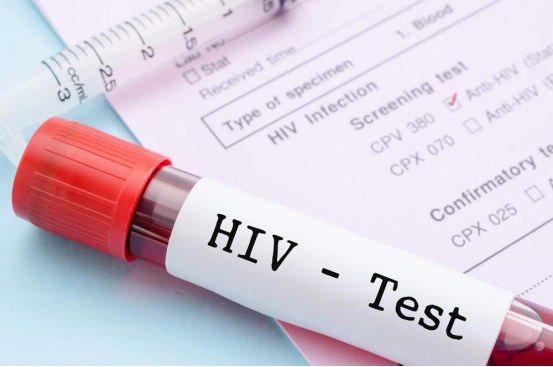Everything You Need to Know About PrEP Treatments for HIV Prevention
Pre-exposure Prophylaxis (PrEP) is an effective HIV prevention treatment that can reduce the risk of contracting HIV in high-risk individuals.
Pre-exposure Prophylaxis (PrEP) is an effective HIV prevention treatment that can reduce the risk of contracting HIV in high-risk individuals.
HIV, or human immunodeficiency virus, is a serious viral infection that weakens the immune system and can lead to AIDS (acquired immunodeficiency syndrome) if left untreated. PrEP has proven to be a highly effective tool in preventing HIV transmission, offering an added layer of protection for those at risk.

What is HIV?
HIV is a virus that attacks and weakens the body’s immune system by targeting CD4+ T-cells, which are critical for fighting infections. Over time, if not treated, HIV can destroy enough CD4+ cells, making the body vulnerable to other infections and diseases, eventually leading to AIDS. HIV is transmitted through the exchange of bodily fluids, such as blood, semen, vaginal fluids, and breast milk, and can be spread through sexual contact, sharing needles, or from mother to child during childbirth or breastfeeding.
How Does HIV Transmission Occur?
HIV can be transmitted in several ways, including:
- Sexual contact: This includes vaginal, anal, and oral sex, as well as sharing sex toys.
- Sharing needles: People who inject drugs and share needles are at high risk.
- Blood transfusions: Receiving a transfusion of infected blood (although this is rare due to rigorous screening practices).
- From mother to child: HIV can be passed during childbirth or breastfeeding.
- Other high-risk behaviors: This includes body-modification procedures (like tattoos and piercings) using unsterilized tools.
What Is PrEP?
PrEP is a preventive treatment for individuals who do not have HIV but are at high risk of contracting it. It involves taking medication that helps prevent HIV from establishing an infection in the body. When taken consistently, PrEP can reduce the risk of acquiring HIV from sex by up to 99% and from injection drug use by up to 74%. PrEP medications can be administered as daily pills or as an injection, depending on the prescribed treatment.
FDA-Approved PrEP Medications
There are several FDA-approved medications for PrEP:
1. Truvada:
This once-daily pill contains two active ingredients, emtricitabine and tenofovir. It's prescribed for individuals at risk of HIV through sexual contact or injection drug use. It’s safe for both males and females over 35 kg (77 pounds).
2. Descovy:
Another once-daily tablet containing emtricitabine and tenofovir. It's approved for use in men and male adolescents but is not yet recommended for females at risk of contracting HIV through vaginal sex due to insufficient evidence regarding its effectiveness in women.
3. Apretude:
A long-acting injectable form of PrEP, Apretude is administered as an intramuscular injection. This medication is given six times per year and provides an alternative for individuals who prefer injections over daily pills.
How Does PrEP Work?
PrEP medications work by interfering with the HIV virus's ability to replicate in the body. Drugs like Truvada and Descovy belong to a class of antiviral drugs called nucleoside reverse transcriptase inhibitors (NRTIs). They block reverse transcriptase, a key enzyme HIV needs to make copies of itself. On the other hand, Apretude works as an integrase inhibitor, stopping the virus from entering and replicating within healthy cells.
How Long Does It Take for PrEP to Work?
The effectiveness of PrEP depends on the method of use:
- For receptive anal sex, PrEP reaches maximum protection after about 7 days of consistent daily use.
- For receptive vaginal sex and injection drug use, full protection takes about 21 days of daily use.
The injectable form of PrEP (Apretude) takes effect after a few doses and provides long-lasting protection, with shots administered every two months after the initial doses.
Who Should Use PrEP?
PrEP is intended for individuals who are HIV-negative but at higher risk of contracting the virus. You may be a good candidate for PrEP if you:
- Have a sexual partner living with HIV.
- Engage in unprotected sex or have inconsistent condom use.
- Have had an STD in the past 6 months.
- Share needles or equipment to inject drugs.
- Have used Post-Exposure Prophylaxis (PEP) multiple times or report continued high-risk behavior.
Pregnant women or those trying to conceive with a partner who is HIV-positive should consult their doctor about the benefits of PrEP.
Is PrEP Safe?
PrEP is generally safe for most individuals, but like any medication, it may come with side effects. Common side effects include:
- Headache
- Nausea or stomach upset
- Fatigue
- Diarrhea
These side effects often subside over time, but if they persist or worsen, you should consult your healthcare provider.
How to Get PrEP?
To get started with PrEP, you need to visit a healthcare provider for an HIV test and a discussion about your risk factors. If PrEP is deemed appropriate for you, the doctor will provide a prescription and discuss the best treatment plan.
Is PrEP the Right Choice for You?
PrEP can be a powerful tool for preventing HIV, but it is not suitable for everyone. If you are at high risk for HIV, talk to your doctor about whether PrEP is the right option for you. Consistent use of PrEP, combined with safe sex practices (like condom use), can significantly reduce your chances of acquiring HIV.
Remember, while PrEP protects against HIV, it does not prevent other sexually transmitted infections (STIs), so using condoms is still recommended to protect against other infections.